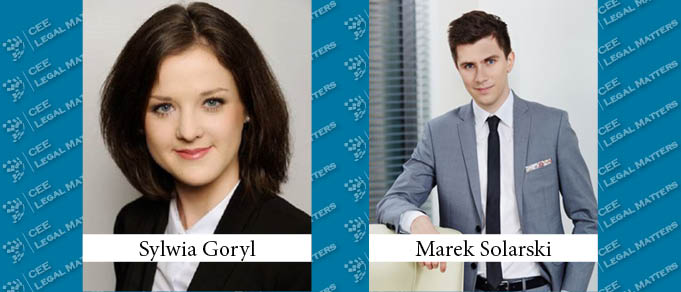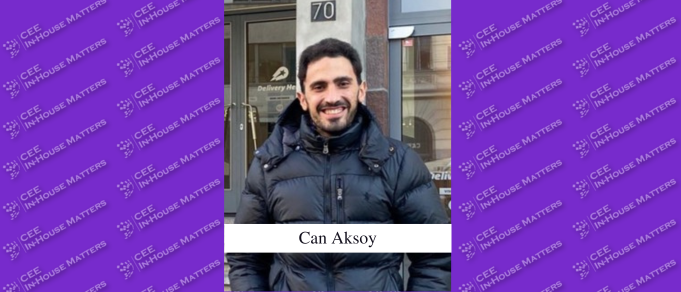Prior to the pandemic caused by the spread of SARS-CoV-2, the Polish Commercial Companies Code permitted limited liability companies and joint-stock companies to hold shareholders’ meetings by means of electronic communication. However, virtual (remote) shareholders’ meetings were to be an exception to the general rule of physical meetings, and were required to have been explicitly permitted in the company’s articles of association. Preventive measures introduced into Polish law in response to COVID-19 by the “Act of 31 March 2020 amending the Act on special arrangements for preventing and combatting COVID-19, other infectious diseases and the crisis situations caused by them and certain other acts”, changed this principle. Below we present the current rules and requirements related to virtual shareholders’ meetings.
WHAT IS A VIRTUAL SHAREHOLDERS' MEETING?
Under Polish law, a virtual shareholders’ meeting is to be understood as the option to attend such meeting via electronic communication.
The matters which can be placed on the agenda and resolved during remote shareholders’ meetings do not differ from those which are usually debated in physical meetings. Both ordinary (annual) and extraordinary shareholders’ meetings can be held virtually.
Shareholders have the same rights as in non-virtual shareholders’ meetings.
PERMISSIBILITY OF VIRTUAL SHAREHOLDERS' MEETINGS
Virtual shareholders’ meetings are now directly permissible in limited liability companies/joint-stock companies pursuant to the provisions of the Code of Commercial Companies, even if there is no explicit provision for them in the articles of association. Thus, if shareholders do not wish to have the option of holding such meetings, they must amend their company’s articles of association accordingly.
DECISION ON CONVENING ELECTRONIC SHAREHOLDERS' MEETINGS
The corporate body which convenes the shareholders’ meetings decides whether such meeting will be virtual or non-virtual (as a general rule, shareholders’ meeting are convened by the management board, but in certain cases such right is vested in the supervisory board or the shareholders).
In the case of a limited liability company, an invitation to an electronic shareholders’ meeting should include not only standard information on the date, time, venue and agenda but also instructions on how to participate in the shareholders’ meeting, speak at it, exercise voting rights and object to the resolutions adopted by it.
Similar obligations as to the information to be included in the invitation are imposed on listed companies, except for the instructions on how to object to the resolutions adopted at the meeting.
The Commercial Companies Code does not impose on private joint stock companies the obligation to include the above-mentioned specific instructions. However, it is advisable to include such information in order to avoid any objections regarding proper convening of the shareholders’ meeting.
RULES FOR PARTICIPATION IN VIRTUAL SHAREHOLDERS' MEETINGS
The Commercial Companies Code provides that all requirements regarding participation in virtual shareholders’ meetings be specified in by-laws adopted by:
a) the supervisory board in the case of a joint-stock company; or
b) the supervisory board (or the shareholders if there is no supervisory board) in the case of a limited liability company. Such by-laws may be adopted by a shareholders’ resolution without holding a shareholders’ meeting if the shareholders representing an absolute majority of votes agree in writing to do so.
The by-laws must set forth technical requirements (however, such requirements cannot be discriminatory towards the shareholders or any group thereof) and guarantee each shareholder real-time two-way communication and the opportunity to exercise voting rights personally or through a proxy. For practical reasons, it is advisable that the by-laws specify how a proxy can provide confirmation of his/her authorization to represent the shareholder or how a shareholder can provide notification of the appointment of a proxy. No requirements or restrictions that are not necessary to identify shareholders and ensure secure electronic communication are permissible.
EXERCISING SHAREHOLDERS' RIGHTS
Thanks to the new regulations, shareholders may actively participate in shareholders' meetings by means of remote communication (e.g. teleconference, videoconference, etc.). According to the provisions of section 234(1) and section 406(5) of the Polish Commercial Companies Code, such participation includes in particular:
- real-time two-way communication by all persons participating in the shareholders' meeting, with the possibility to speak during the meeting; and
- exercising voting rights during the shareholders' meeting (personally or by proxy).
As of 3 September 2020:
- a joint stock company will have to immediately provide its shareholders with confirmation that the vote was submitted; and
- shareholders will be entitled to request, by three months after the general meeting, confirmation that their votes have been properly recorded and counted.
EXTENSION OF DEADLINE TO HOLD ANNUAL SHAREHOLDERS' MEETINGS
The deadlines for approval of the annual financial statements/annual consolidated financial statements and the annual shareholders’ meetings have been extended on the basis of the Regulation by the Minister of Finance dated 31 March 2020:
- for limited liability companies and joint stock companies – by three months; and
- for listed companies – by two months.
The above extensions apply to the obligations related to financial years which end after 29 September 2019 but not later than 30 April 2020, provided that the deadline to approve the annual financial statements did not expire by 31 March 2020.
VENUE OF THE SHAREHOLDERS' MEETINGS
Regardless of the possibility of participating in shareholders’ meetings by remote communication, pursuant to Polish law, the meeting has to be held in the territory of Poland (i.e. at the place where the company is registered or in another place indicated in the articles of association). At least the chairman of the meeting and the secretary/notary public must be physically present.
MINUTES OF THE SHAREHOLDERS' MEETINGS
Pursuant to the Commercial Companies Code, the holders of a virtual shareholder’s meeting are not exempt from the obligation to prepare minutes of the meeting. Accordingly, these should be drawn up in writing in a limited liability company and in the form of a notarial deed in a joint-stock company. The minutes should be accompanied by an attendance list and a list of shareholders that have exercised their voting rights via remote communication. The shareholders’ signatures need not be collected on the attendance list. The secretary of the meeting/notary public draws up the minutes of the shareholders’ meeting.
PRACTICAL PROBLEMS REGARDING VIRTUAL SHAREHOLDERS' MEETINGS
The current provisions of the Polish Commercial Companies Code regarding virtual share-holders’ meetings raise numerous questions, such as who bears the burden of liability for in-adequate technical measures used for the meeting and whether shareholders are deprived of certain rights.
To give only two examples:
- Even the best electronic equipment or internet connection may fail. As a result, one may be deprived of voting rights due to technical reasons (e.g. breakdown of the internet connection, failure of electronic equipment).
- If a shareholder intended to vote against a resolution, but did not cast a vote for technical reasons, that shareholder will not be entitled to bring an action to annul or declare the invalidity of the resolution based on Article 250(2) or Article 422(2)(2) of the Commercial Companies Code. This is because the law requires the objecting shareholder to have voted against the measure, and this requirement will not have been met (the shareholder did not cast a vote at all, for technical reasons).
SUMMARY
New provisions of the Polish Commercial Companies Code have certainly brought flexibility for shareholders by making virtual attendance at shareholders’ meetings permissible. Despite a number of questions and doubts that arise today, e.g. in respect of whether shareholders might be deprived of certain rights, this flexibility is especially convenient for foreign shareholders because it frees them from the effects of any restrictions on movement or other difficulties. Now, it is up to everyday practice and jurisprudence to forge the proper legal approach to matters unaddressed by the new regulations.
By Sylwia Goryl and Marek Solarski, Associates, Noerr





























